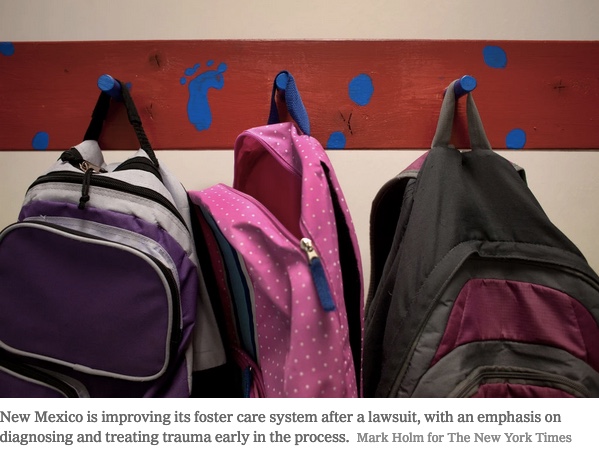Under the terms of the agreement, the state committed to several changes aimed at improving childhood well-being, such as early screenings to diagnose and treat trauma. Other reforms include easy access to behavioral health services, long-term placements with families and culturally appropriate communities that nurture relationships, and training for foster parents, caseworkers and mental health professionals on the neurological effects of trauma.
The settlement resolves the lawsuit that was filed in September 2018, and was seen as a major victory to child advocacy groups that say the agreement could serve as a national model for foster care reform.
Across the country, foster care systems have been sued over the years for having too few caseworkers, and for cycling children through unsafe housing. But rarely have states agreed to such broad reforms, said Kathryn Eidmann, a lawyer with Public Counsel, a nonprofit group that filed the suit along with several law firms and advocacy organizations.
“New Mexico is the first state to build a comprehensive system of child welfare organized around the principle of understanding and addressing the impact of trauma on foster youth,” she said. “The new approach will be transformative for the children of New Mexico, but it also paves the way for broader change across the country.”




